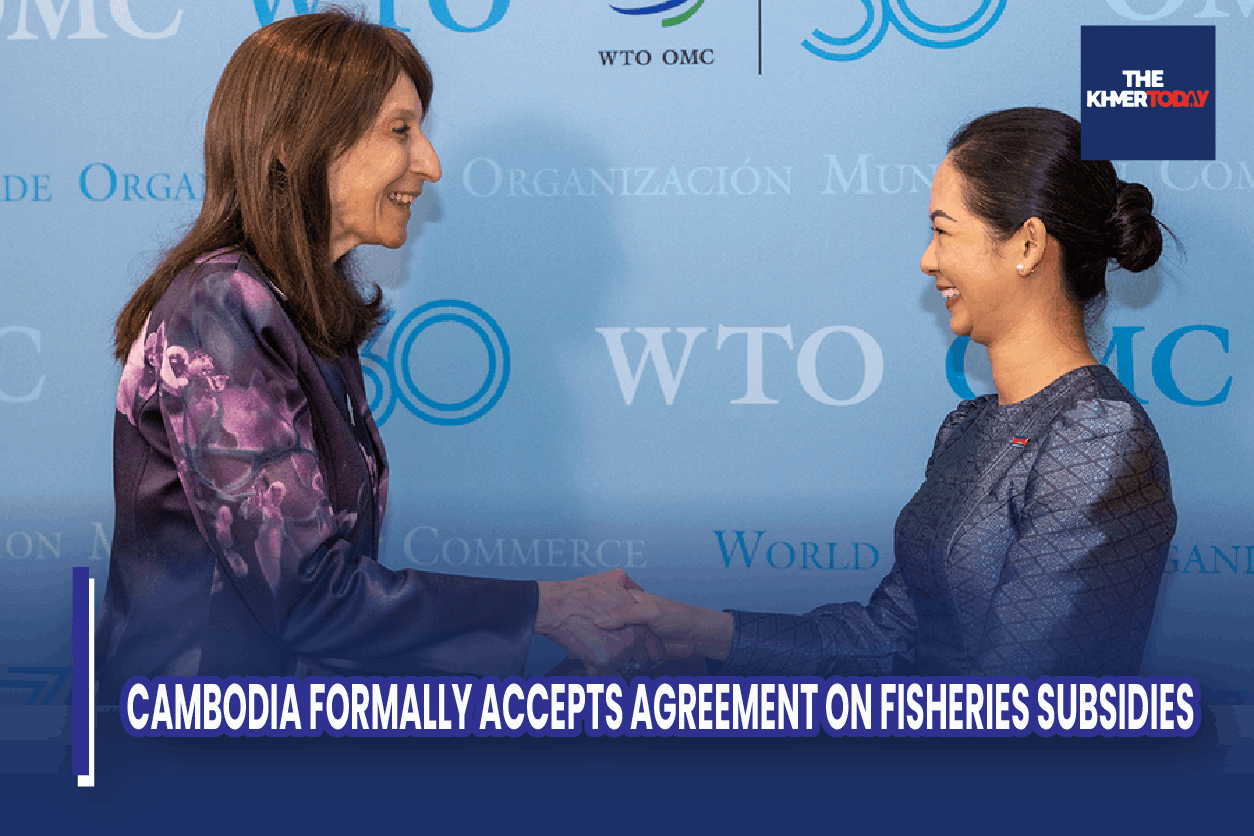Cambodia Formally Accepts Agreement On Fisheries Subsidies

Cambodia deposited its instrument of acceptance of the Agreement on Fisheries Subsidies on 6 May. Minister of Commerce Cham Nimul presented Cambodia's instrument of acceptance to Deputy Director-General Angela Ellard.
DDG Ellard said: “I warmly welcome Cambodia's formal acceptance of the Agreement on Fisheries Subsidies. By disciplining subsidies worldwide to harmful fishing, the Agreement will strongly benefit Cambodia, for which fisheries plays an important role in its food security and economic growth. Cambodia's formal acceptance underscores the significance that it, as a least-developed country, attaches to international collaboration in preserving the sustainability of the world's oceans.”
Minister Cham said: “Cambodia is fully committed to and is a firm believer in the multilateral trading system. Depositing the instrument of acceptance of the WTO Agreement on Fisheries Subsidies today reflects our unwavering commitment and relentless effort to regulate subsidies for illegal, unreported, and unregulated fishing. We are proud that, as a least-developed country, we can contribute to a solution in ensuring and protecting life underwater and ocean sustainability, thus attaining the UN-led 2030 Sustainable Development Goals. With approximately 260 million people directly or indirectly depending on sustainable marine resources, we cannot afford to wait any longer for the Agreement to come into effect, as marine stocks are being destroyed and diminished daily.”
Cambodia's instrument of acceptance brings to 73 the total number of WTO members that have formally accepted the Agreement. Thirty-seven more formal acceptances are needed for the Agreement to come into effect. The Agreement will enter into force upon acceptance by two-thirds of the membership.
Adopted by consensus at the WTO's 12th Ministerial Conference (MC12), held in Geneva on 12-17 June 2022, the Agreement on Fisheries Subsidies sets new, binding, multilateral rules to curb harmful subsidies, which are a key factor in the widespread depletion of the world's fish stocks. In addition, the Agreement recognizes the needs of developing and least-developed countries and establishes a fund to provide technical assistance and capacity building to help them implement the obligations.
The Agreement prohibits support for illegal, unreported and unregulated (IUU) fishing, bans support for fishing overfished stocks and ends subsidies for fishing on the unregulated high seas.
Members also agreed at MC12 to continue negotiations on outstanding issues, with a view to adopting additional provisions that would further enhance the disciplines of the Agreement.